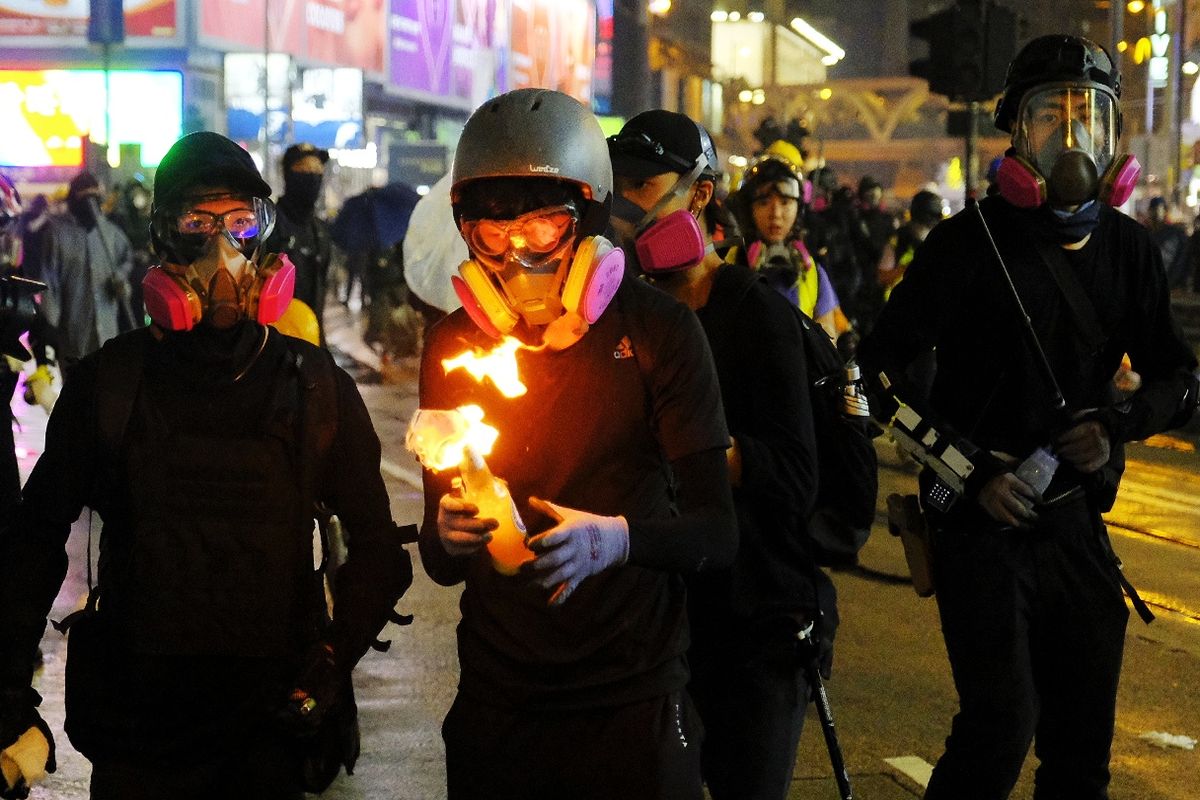US pauses aid to Ukraine, say reports
US President Donald Trump has paused all aid to Ukraine till as much time as it takes to determine President Volodymyr Zelensky's commitment to ending the war with Russia,
As the demonstration gaind momentum, the participants started a fire and blocked some roads in the Tai Ton district, prompting officers to rush to the area soon later at night to disperse the crowd.

A rioter is about to throw a Molotov cocktail at the police in Causeway Bay of south China's Hong Kong (File Photo: IANS)
Hundreds of protesters took to the streets in Hong Kong to mark eight months since the mob beatings in Yuen Long area led to protesters blocking roads and starting a small fire, as police fired tear gas to disperse the crowd, according to the report on Sunday.
The rally on Saturday night centred on the events of last July 21, 2019 when a group of white-clad men wielding metal rods and wooden poles attacked protesters and commuters indiscriminately at the district’s MTR station and on a train, injuring 45, the South China Morning Post said in the report.
Advertisement
As the demonstration gaind momentum, the participants started a fire and blocked some roads in the Tai Ton district, prompting officers to rush to the area soon later at night to disperse the crowd.
Advertisement
Earlier this month, the city’s police had arrested 115 people after a night of chaos that marked the first major outbreak of anti-government protest violence since the start of the coronavirus crisis in the city.
The incident in Mong Kok took place after about 100 protesters gathered to block Nathan Road, marking six months since major clashes on August 31, 2019.
The crowd grew in size later into the night.
Protesters threw bricks, stones, bamboo sticks and other hard objects at an officer, who pulled out his gun as he believed his life was in danger, police said.
Demonstrations in Hong Kong began in June following a controversial extradition bill, already withdrawn by the government, but have mutated into a movement seeking to improve Hong Kong’s democratic mechanisms and safeguard the region’s partial autonomy from Beijing.
Hong Kong’s protests are largely leaderless and organised online. They were initially sparked by a now-abandoned attempt to allow extraditions to the mainland but have since morphed into a popular revolt against Beijing’s rule.
In 2018, the Hong Kong government had disqualified the candidacy of another pro-democracy activist, Agnes Chow, for the Legislative Council by-election in March of the same year due to her stance on advocating self-determination for the former British colony.
The controversial China extradition bill was withdrawn in early September but the movement has morphed into a wider campaign for greater democracy and against alleged police brutality.
Advertisement